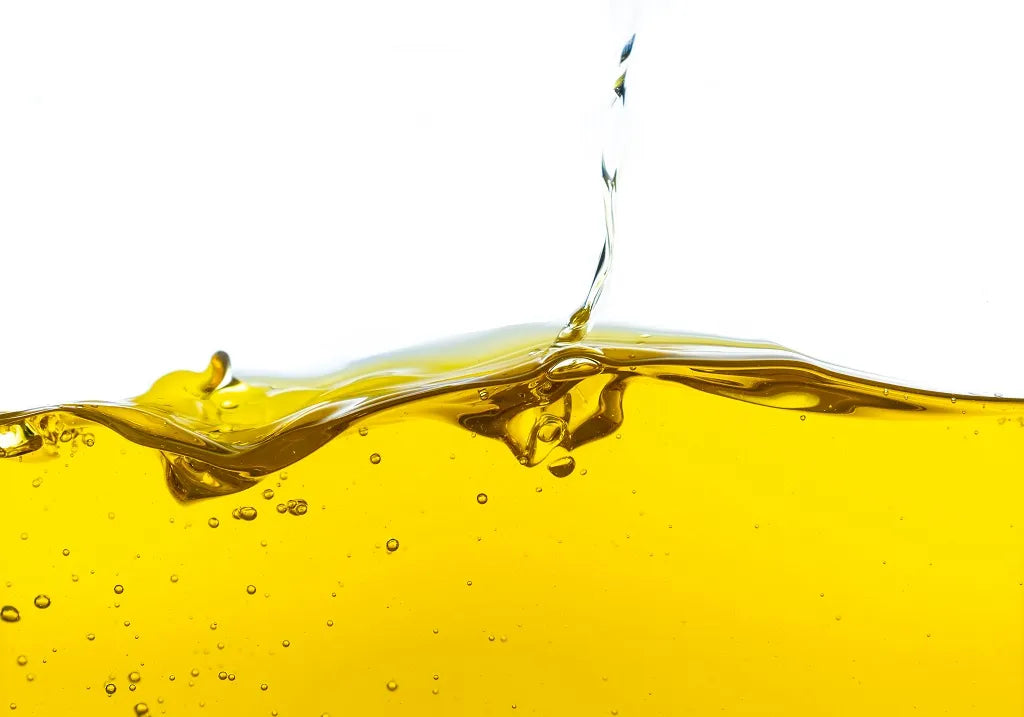Many of you might not be familiar with Cocamidopropyl betaine, but it is a primary ingredient in most personal care products. Cocamidopropyl betaine or CAPB is commonly used in cosmetic and household cleaning products. Let’s dig deeper into the benefits of Cocamidopropyl betaine.
What is cocamidopropyl betaine?
The synthetic fatty acid - Cocamidopropyl betaine also known as coco betaine is derived from coconuts. Cocamidopropyl betaine is a surfactant. When it comes in contact with water it makes the molecules slippery and prevents them from sticking together. It acts as an excellent surfactant that easily binds with dirt, oil, and other impurities, making it easy to get them off the skin. This yellow-coloured liquid is highly viscous which means it works into a lather quickly. As it is derived from coconuts, it has hydrating elements as well.
Benefits of cocamidopropyl betaine for hair
In hair care products, Cocamidopropyl betaine is used as a surfactant. It is a foaming agent, thickening agent, viscosity increasing agent, and emulsifier. Cocamidopropyl betaine is used in many hair care products for good reasons. Let’s elucidate the haircare benefits of Cocamidopropyl betaine to understand what makes it so special and a beloved haircare ingredient.
1. Cleansing
It acts as an excellent cleansing agent as it binds with dirt, grime, and other impurities, to effectively get rid of them. This surfactant enhances the cleansing action of any shampoo.
For example, Curly Hair Shampoo from Curlvana. It has Cocamidopropyl Betaine that gently cleanses your hair.
Buy Curlvana Fortifying Curl Cleanse Shampoo
2. Hydrating
Cocamidopropyl betaine is more hydrating than other surfactants as it is derived from coconuts. Coconuts are known for their nourishing and moisturizing properties.
3. Gentle on scalp
Because it is less irritating, it gently cleanses the scalp by binding with the impurities and lathering them up. It’s mild cleansing action doesn’t strip the hair off its natural oils.
4. Ideal for daily usage
This ingredient is gentle enough to incorporate into your daily hair care routine. Those who like to shampoo frequently must look for coco betaine in their hair cleanser’s ingredient list. It can remove impurities from the skin due to makeup and environmental pollutants.
5. Used in conditioners as anti-static agent
It is commonly used in conditioners and hair serums as an anti-static agent which helps to reduce static charge buildup, preventing frizz and flyaway hairs.
How to use cocamidopropyl betaine for hair?
Cocamidopropyl betaine is a synthetic detergent and a surfactant that is found in almost every shampoo, conditioner, and hair mask. So you may be using it already. This gentle cleanser is incorporated into baby shampoos as well. As per experts, Cocamidopropyl betaine haircare products are safe for everyday use and will not have any adverse reactions. Other surfactants such as SLS (sodium lauryl sulfate) and SLES (sodium laureth sulfate) are harsh on the hair and can strip away the natural oils causing scalp dryness and frizzy hair. Using a gentle cleanser such as coco betaine can balance the pH level of the scalp while gently cleansing the hair without robbing it of its natural oil.
Other ingredients it is compatible with
Cocamidopropyl betaines are naturally gentle on the scalp. When combined with anionic surfactants, they exhibit strong anti-irritant qualities. They produce excellent foam that is stable in both hard and soft water They are compatible with both anionic surfactants and cationic surfactants. However, they can't be used with anionics with low pH. The cocamidopropyl betaine derivative is more compatible with anionics when used in higher concentrations.
Side effects of cocamidopropyl betaine
Cocamidopropyl betaine is generally considered to be safe for topical application, however people with sensitive skin can experience allergic reactions. CAPB itself, however, is not the cause of allergic reactions, but rather two impurities formed during the manufacturing of CAPB can be responsible for triggering the allergic reactions. The 2 allergens are Aminoamide (AA) and 3-dimethylaminopropylamine (DMAPA). In the clinical study, it was reported that people didn't show signs of allergy if they were not exposed to the 2 allergens. In its purest form, i.e high grade of Cocamidopropyl betaine does not contain any allergens. It is therefore not known to have caused an allergic reaction.
In extreme cases, some people may experience an allergic reaction on the skin like rashes, swelling, and itchy scalp. If you are allergic to the impurities in CAPB, then you may experience swelling, pain, and irritation in the eyes and eyelids due to its allergic reaction. If you experience any of these adverse effects after using Cocamidopropyl betaine, then immediately discontinue its use and consult a doctor.
This pale yellow viscous liquid is used in several beauty products such as shampoos, conditioners, soaps, body washes, and face washes. It is also used in personal hygiene products such as hand or face lotions, bath oils, and liquid soaps. It is also a popular ingredient in some home cleaning products such as laundry detergents.
You can avail a wide range of hair care products containing Cocamidopropyl betaine as it is gentle on your scalp. It cleanses and hydrates the scalp and hair, resulting in a healthy scalp and vibrant hair.
Also Read :
Cocamidopropyl Hydroxysultaine
All the content published on www.Curlvana.in is solely for information purposes. It is not a substitute for professional medical advice, diagnosis, or treatment. Always consider seeking the advice of your physician or a qualified health care provider. The information, suggestion, or remedies mentioned on this site are provided without warranty of any kind, whether express or implied.




